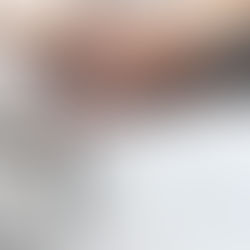
Hard floors are the trend now. People are rolling up their wall-to-wall carpeting (with good reason) and opting for easier-to-keep-clean hard floors.
Types of Hard Flooring
There are four major types of hard flooring found in homes.
1. Wood: this can range from pine and oak to exotic types like Brazilian Cherry and cork, but, can also include laminates because of their thin wood overlays.
2. Tile: Usually in square or rectangular shapes, most are manufactured but some are individually hand crafted ($$$!) and must be grouted to form a solid surface. These include terra cotta, slate (which is a quarried tile), clay, and marble.
3. Vinyl: Very popular now because it is inexpensive and easy for the DIY’er to install (I’ve done most of my condo by myself). It comes in snap-together planks in a wide variety of colors that can mimic hardwood floors or tile, but with a more durable and waterproof finish. It doesn’t require maintenance beyond regular cleaning.
4. Solid: This category includes concrete, terrazzo, linoleum, and the up-and-coming epoxy floors. These are those wild images of streams going down a hallway, or chasms that seem to open up below your feet…yeah, no thanks! But they can also be made to look like beautiful marble or stone. They are super glossy and durable, but pretty pricey to have installed, which requires a trained professional.
All have unique cleaning requirements and what is used can either sustain or destroy it. It is common for salespeople and installers to “recommend” particular products for use on their flooring. It’s important to keep in mind that there may be a partnership between the flooring company and the cleaning product company. A sort of “if you scratch my back, I’ll scratch yours.” agreement. The flooring company just happens to sell the product they are recommending which is marked up for another stream of income. Installers tell you what they are trained to say.
In many cases, the product in question is *not* non-toxic. Ask questions.
· Will it void my warranty if I use a different product/cleaner?
· What other products are suitable for cleaning my new floor?
· What exactly does my warranty cover?
Having new flooring installed can be a major expense and you certainly don’t want to void the warranty but be sure you’re not being duped into buying an expensive cleaning product that is no more effective than soap and water. It’s called “companion marketing”.
This Method or That System?
It is generally agreed that the best way to clean your floors is the old fashioned way…
HAHAHA! Sure...
I ran into this problem in my cleaning business. Some clients would (after my cleaners had left) wipe some surface, presumably the floors, with a white paper towel to “test” our effectiveness. I had two problems with this:
1. Why did they wait until we were gone?
2. Floors are never fully clean. Many people can’t even wait for the floor to dry before walking on it again.
A number of my former clients were under the false impression that mopping would achieve “eat-off-the-floor” success. In order to even get close to that goal, my cleaners would have had to pull a “Cinderella” (as I call it) and get on their hands and knees. First, not one of my former employees was willing to do this, and second, it would be so time consuming as to be cost prohibitive to the customer. I even had a few clients that expected that for no additional money, which jumps into a whole other realm of discussion.
I digress…
Floors are near the top of the list of “Why People Hire Cleaning Services” because they are willing to pay someone to come do it for them. While professional cleaners are in the business of cleaning, we are also there to make money, so mopping is the happy medium.
What kind of soap and how much? Do I add vinegar? My mother-in-law says that vinegar will ruin my floors!
Relax.
If you mix white distilled vinegar with a quality biodegradable liquid soap (I love Sal Suds® ), 1c. vinegar and 1Tablespoon soap, per gallon of hot water you will have a near neutral cleaning solution that is non-toxic and effective. That’s what you want, right? 😊
The key is to replace the solution often as it gets cold and/or dirty. Don't expect one gallon to do an entire house. A good rule of thumb is one bucket-full per large room or two small rooms. Rinse the mop often, and keep it damp, not dripping wet. This will clean most floors. That said, if you have the money to invest in a pricey floor, you probably have the money to have a professional clean it. Make sure they are knowledgeable on what to do. Many don't.
Other chemical cleaning solutions that can be purchased off the shelf may (and probably do) have unlisted chemicals that may also be toxic to kids and pets or damage your floors if not used properly. If you’re not sure, look them up on Environmental Working Group’s website.
I recommend that you stick to the basics; soap, vinegar, and water.
If you want to get on your hands and knees and scrub your floor, rock on! I do (very) occasionally…it’s kind of cathartic.





